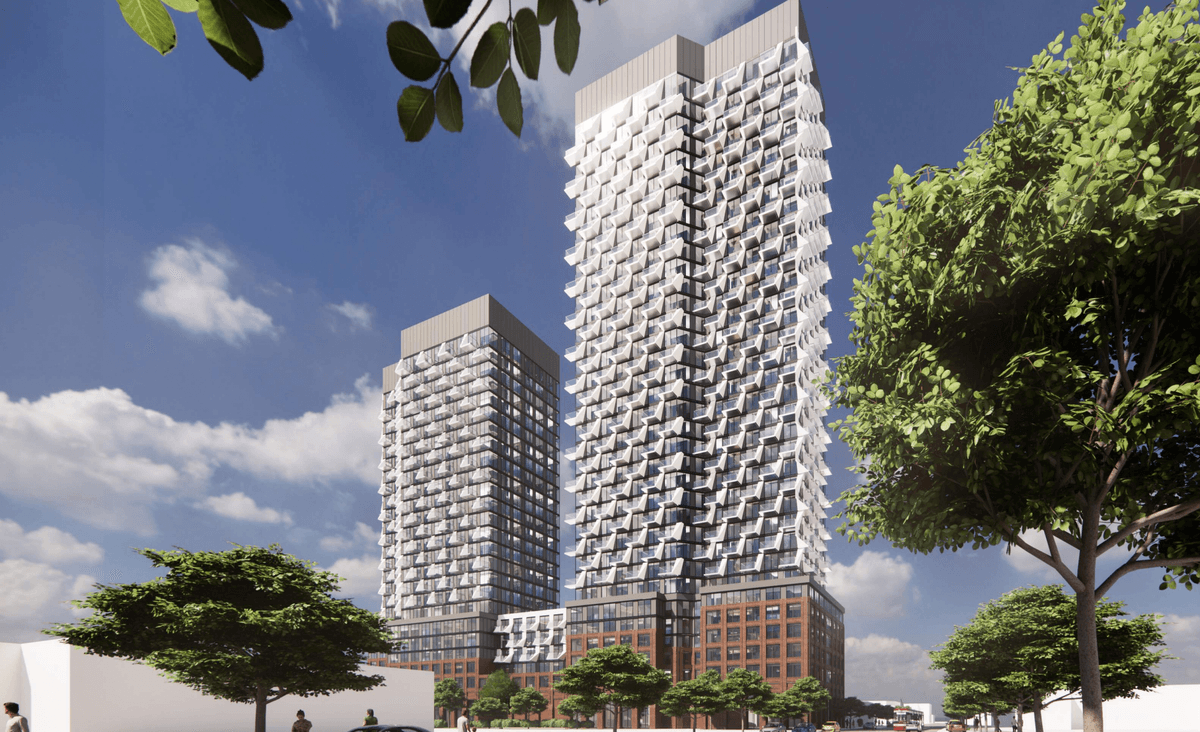For the past 12 months, while all eyes have been on Toronto's red-hot single-family housing market, it seems as if condos were forced to sit on the back burner as a large swath of downtown residents suddenly turned their attention to finding more space in the suburbs.
As a preference for ground-level homes with more space increased -- both in the Toronto area and in the aforementioned neighbouring suburbs -- pressure formed on the downtown condo market, while a critical decrease in immigration (that usually helps drive the market) served to only further depress demand.
Though, Toronto's condo market slowly began to flicker back to life during the last weeks of 2020, as the vaccine rollout promised a return to normalcy in the downtown core.
Of course, the damage had already been done. By the end of Q1-2021, vacancies for purpose-built buildings in the Greater Toronto Area (GTA) had climbed to 6.6%, up from 1% a year ago and 5.7% at the end of 2020, according to Urbanation. Most of the impact was in Toronto, which saw an 8.8% vacancy rate in the first quarter, compared to 1.5% in the 905 communities surrounding the city.
READ: Toronto’s Downtown Condo Market Bounces Back to Pre-Pandemic Levels
However, this has left plenty of properties to purchase and rent, with 2,886 new condominium units sold in Toronto in Q1-2021, which is more than 2.5 times higher than the quarterly average between Q2- and Q4-2020 and above the pre-pandemic level of 2,829 sales in Q1-2020.
At the same time, the number of units leased in the first quarter reached a high of 11,928 -- up 70% from a year ago -- while new condo rental listings fell 12% quarter-over-quarter.
This comes as Toronto home resales fell 20% between March and April on a seasonally adjusted basis, offering the first sign that the furious pace of the last four months is finally slowing down, though the area’s average selling price still reached $1,090,992 in April -- up by 33% year-over-year -- further removing many potential buyers from the equation.
But it's also because of this huge growth in price that buyers are now returning more and more to the condo market as it serves as a more affordable option than ground-oriented homes, with the average condo selling price now sitting at $727,137. This isn't to say condos haven't done their own appreciation work, having risen 18.7% year-over-year from April 2020.
In the Canada Mortgage Housing Corporation's (CMHC) Spring Housing Market Outlook, the national housing agency said the sales of condos have been making up a larger proportion of overall 2021 sales, indicating a recovery of demand for higher-density housing.
"This compositional shift in sales toward condominium apartments will continue as the pandemic recedes and will contribute to the moderation of average house price growth," said CMHC.
According to data from the Toronto Regional Real Estate Board (TRREB), the 416-area has recorded 16,118 home sales since the start of 2021, with condos accounting for 8,761 (45.6%) of the transactions.
Dorian Rodrigues, a broker for PSR Realty, told STOREYS he's noticed that condos have really picked up over the past few weeks.
"As of right now, many couples have been priced out of the freehold market due to the rapid increase in pricing so buyers either resort to a condo or out of city living," said Rodrigues.
"I believe housing will remain strong throughout the year, but as Toronto strives to open up, condos will be the biggest comeback since the start of COVID. We are seeing an increase in inventory, and some record-breaking numbers in the core as well," added Rodrigues.
CMHC said the revival of in-office work, indoor dining, and large social gatherings are expected to further drive demand back to the urban core, where most condominium apartment buildings are located.
Cam Forbes, General Manager/Broker of RE/MAX Realtron Realty Inc., echoed a similar statement and told STOREYS he believes urban core areas and the subsequent condo market offer long-term advantages to owners and will lead to demand increasing back to pre-COVID times.
Forbes said some of the long-term advantages for homeowners include being close to downtown workplaces (or against traffic to other work locations), which ultimately means reduced commute times.
There's also the added benefit of the social nature of work. "Even with more flexible work from home arrangements, many will still desire to go to a workplace regularly for social contact," said Forbes.
Returning to urban cores also means that, "you’re close to the action, including sports, arts, festivals, events, restaurants, clubs, etc," added Forbes.
Forbes noted that those living downtown will also have a reduced carbon footprint and improved affordability with the reduced need for a car, which is also a big pull for potential buyers.
As the vaccine continues to roll out through Toronto's hotspots, confidence in Toronto's downtown core will resume, and buyers may continue to take advantage of the current rock-bottom interest rates. However, the rate, which is currently 0.25%, is expected to come to an end sometime in the second half of 2022.





















